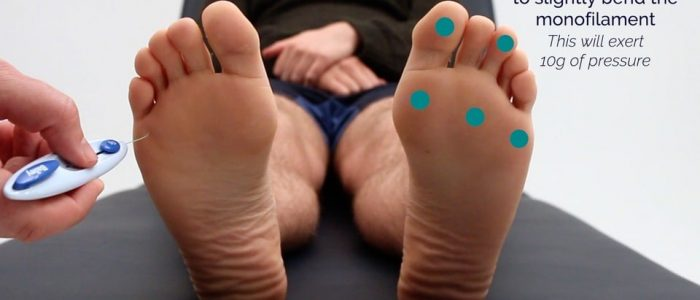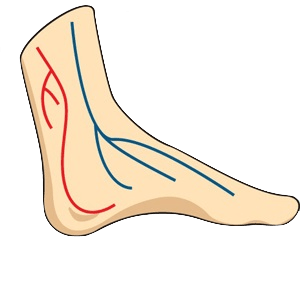Diabetic Foot Care
What is Diabetic Foot
Other factors that can contribute to the risk of developing diabetic foot problems include impairment of the immune system, fungal and bacterial infections, poorly fitting shoes and cigarette smoking.
How Diabetes Affects Your Body?
High blood sugar levels can affect your entire body. Many people with high blood glucose levels may initially feel normal and not realise that the high blood glucose level is silently doing damage.
Diabetes is a chronic condition that can impact other functions of the body including the: Feet, Toes and Skin.
What is Diabetes?
Diabetes is a condition characterised by high levels of glucose (or sugar) in the blood. When a person has a high blood sugar level they are said to be hyperglycaemic.
Diabetes is a chronic condition that is characterised by high blood glucose (sugar) levels. Diabetic patients are at a high risk for developing chronic wounds, especially in the feet. If left untreated, these wounds can cause serious problems that can lead to infections and eventually gangrene, which may require amputation.
In diabetic patients, foot ulcers or wounds that do not heal occur due to two major complications:
- Neuropathy: Nerve damage causes numbness in your feet, reducing the ability to feel pain and discomfort. When you do not feel pain, even a small cut or blister can form ulcers, sores and infections by going unnoticed.
- Peripheral vascular disease: Good blood supply is very important for healing of tissues. Poor blood circulation, and thereby insufficient oxygen supply to your feet, is caused by diabetes-associated damage to the blood vessels. This makes healing difficult.
Glucose is essential for providing the body with energy. The body converts many of the foods that we eat into glucose. A hormone called insulin is required to transfer glucose from the bloodstream to the body’s cells.
If you suspect or know you have diabetes it is important to speak with your doctor to seek testing and advice on how to best manage your diabetes.
Signs and Symptoms Of Diabetic Foot
If you are a diabetic, you should be aware of any problem that affects your feet. Early warning signs of foot problems that should be recognised include:
- Burning, tingling or acute pain in the feet
- Numbness of the feet or loss of sensation to heat, cold or touch
- Changes in the shape of the feet
- Loss of hair on the lower legs, feet and toes
- Changes in the colour of your feet
- Appearance of blisters, ingrown toenails, yellowing toenails, sores or ulcers
- Infection of corns and calluses on the feet (thickened areas of skin that can become painful)
Complications of Diabetic Foot
Diabetic wounds are one of the most severe types of chronic (non-healing) wounds that can impair your quality of life. Complications can include:
- Wound infection: A small ulcer on the foot when left untreated can attract bacteria, resulting in skin and bone infections.
- Gangrene: Chronic wound infections may cause gangrene, a condition characterised by death of tissue.
- Amputation: Chronic wounds may not respond to treatment and if serious enough, may require amputation.
Diagnosis of Diabetic Foot
The diagnosis of diabetic foot problems is based on your medical history, symptoms and physical examination. Examination should include tests to assess the wound as well as neurological and vascular status. Some of the common tests include:
- Wound culture to detect an infection
- X-ray, CT and MRI scans
- Doppler or arteriography studies to assess blood flow to the feet
- Blood glucose tests to assess levels of glucose in the blood
- Full blood count to determine white blood cell (WBC) count; high levels of which are indicative of infection
- Semmes-Weinstein monofilaments are used to assess sensitivity to touch
Treatment of Diabetic Foot
Mild foot infections generally heal with antibiotic or antifungal treatment. However, more serious problems may require corrective shoes, custom footwear, orthotic devices, splinting or bracing.
Corrective foot surgeries may sometimes be indicated for foot deformities that may progressively worsen. Surgical treatment is recommended for chronic wounds to control infection and create an environment that encourages healing, and preserves the structural and physical integrity of the foot.
Surgical treatment involves the following steps:
- Surgical debridement: This process involves the removal of dead and infected tissue, and treatment with antibiotics.
- Reconstruction: This process involves bone cuts to reconstruct the normal architecture of the foot.
- Skin defect covering: Once the infection has alleviated, surgical procedures to cover the skin defect may be performed.
- Amputation: In severe cases of gangrene, the affected part of the body is surgically removed to prevent spread of infection to other parts of the body.
Preventive Care for of Diabetic Foot
Since chronic foot wounds are common in diabetics, taking a few preventive steps can keep your feet healthy.
- Avoid walking barefoot, especially on hot surfaces.
- Use a moisturiser for dry feet. Apply only to the heels and not between the toes.
- Don’t cut corns or calluses with scissors or razors.
- Trim your toenails straight across.
- Wash your feet regularly with warm water and dry them thoroughly, especially between the toes.
- Wear comfortable and well-fitting shoes.
- Wear socks or stockings all the time.
- Check your feet regularly for cuts, sores, blisters or infections.
- Quit smoking.



